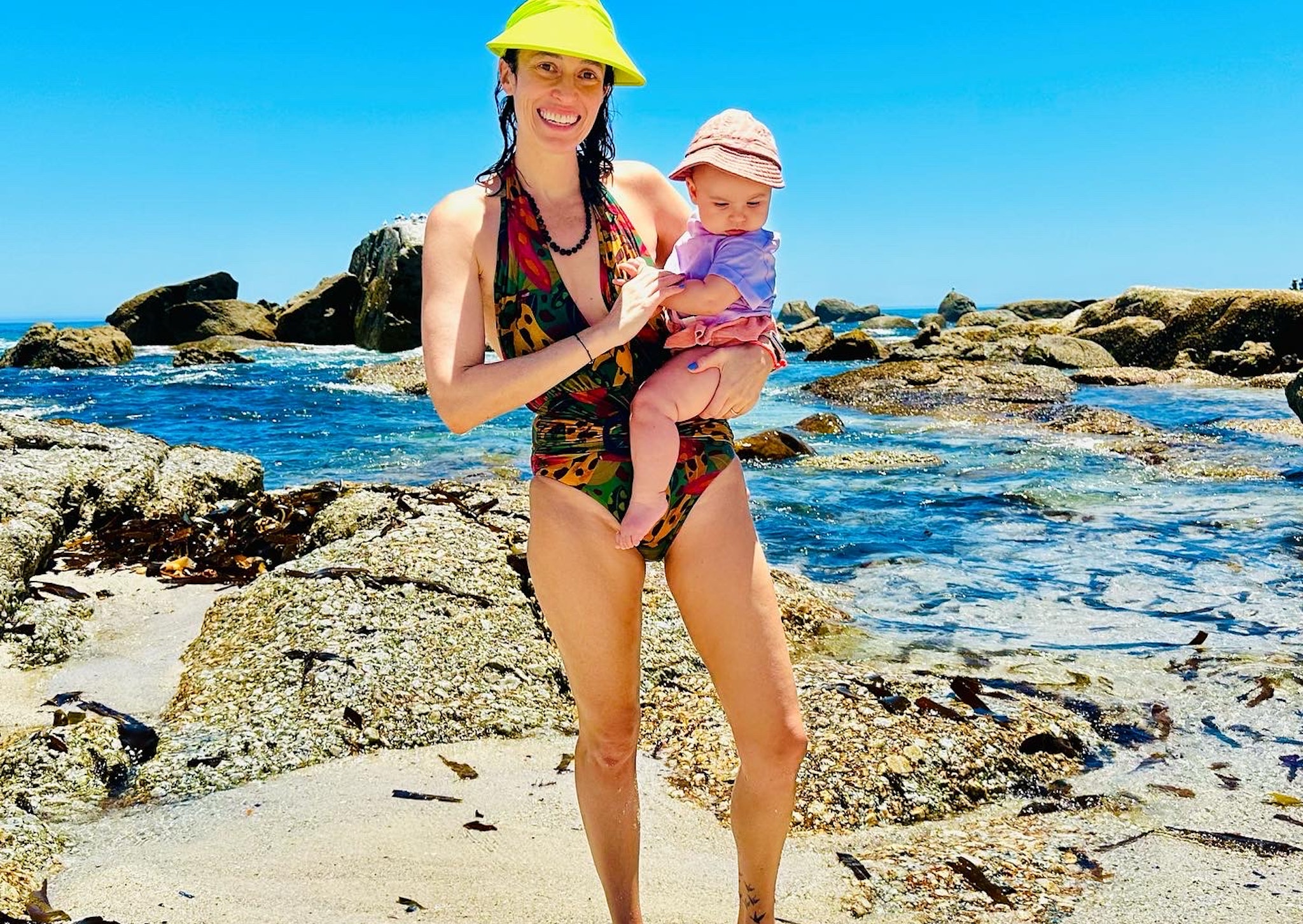Six years ago, Courtney Boyd Myers set out on a journey to bring 100% plant-based and kelp-based burgers, crab cakes and jerkies into mainstream commercial markets. Before AKUA was introduced into the world in 2018, Courtney recognized a larger educational component missing regarding underwater farming and consumption of kelp-based products. If she was going to successfully scale her business, it was going to take a concerted effort of educating consumers, resetting cultural images around kelp-based products, and a simplified message to get the job done.
We caught up with her this week to learn about the course that she and her team are on right now and how a strategic partnership with an unusual celebrity is helping her capture market share.
Celebrity Trademark. Who’s the biggest celebrity you can think of? What if we told you there was a celebrity who has withstood the test of time, grown increasingly relevant generation after generation and was responsible for over $13 billion in product sales using his name, image, and likeness? He is 24 years old and arguably the most recognizable face in the world.
To be fair, the question is intentionally misleading because most people only consider living beings to be capable of holding celebrity status. However, that might be an unnecessary, self-inflicted limitation.
Viacom’s Nickelodeon owns one of the most popular and enormously profitable cartoon franchises and intellectual property enterprises the world has ever seen through Spongebob Squarepants. Originally created by Stephen McDannell Hillenburg in 1999, the show has been running over 24 consecutive years.
From toothpaste to yogurt, his IP (intellectual property) has been leveraged across every aisle of the grocery store by large multinational corporations to indie consumer brands.
Why? No matter the product category or company, there are 4 basic reasons brands work with recognizable cartoon characters like SpongeBob SquarePants.
- Make a product stand out on a grocery shelf
- Elevate brand trust
- Simplify consumer education
- Price a product at a premium
However, even after considering the plethora of brands that have leveraged Spongebob’s IP over the years, it felt there was a specific product pairing that was missing from his portfolio which best fit the franchise’s ethos: A Kelp Brand.
One part of the issue is there are few consumer brands that are building products with kelp-based ingredients. The other part of the same issue is that kelp has not had any historical success in mainstream commercial markets within the United States. AKUA is one of a few brands tackling both issues.
A Magical Business Moment. One afternoon Courtney received an email from a Nickelodeon executive suggesting that their team had been watching AKUA from a distance for some time and felt that an IP partnership with SpongeBob would be mutually beneficial.
She recalls hanging up that phone call and thinking to herself that she was entering “a magical business moment.”
As Courtney described, “Our mission with kelp can be seen by a lot of people as very niche. I’m that strange seaweed girl with a small business. I knew that any celebrity backer would add a huge amount of validity to the mission.”
To understand what she means by this, it might be helpful to take a step back and consider the unique challenges for her business.
A Primer on Kelp. Courtney is an expert around the conversation of underwater farming of macroalgae and kelp. She’s deepened her knowledge on the topic as her business has grown (pun intended!). The rest of us have not. So, let’s give ourselves a primer.
Kelp is a macroalgae, which means it belongs to the algae kingdom. All forms of algae are edible and unlike the closely related fungi kingdom, none are poisonous (or make you hallucinate!). Seaweeds like kelp grow on coastlines all around the world, and kelp specifically is a cold water species. It’s the foundational ingredient that AKUA has based its Kelp Burgers, Kelp Jerky and Krab Cakes on.
There are a few reasons why AKUA chose kelp-based food products. We will focus on the most important one. As Courtney explained, “We have a planet that’s 70% ocean and 30% land. Nearly 40% of our planet’s arable land is used for agriculture. In order to do that, we have to chop down trees and rainforests to grow crops like soy to feed animals that then in turn feed us. Unlike most animals or fish, kelp is totally cool being farmed in the ocean. It doesn’t want to go anywhere or run away. Ocean farming is amazing because it’s a form of agriculture that is all about things in tandem with nature, not against it.”
In other words, mainstream agricultural practices are inefficient. Mainstream commercial adoption of kelp-based products presents a huge opportunity to substitute damaging ways to grow food like fish farming or factory farming with for more sustainable, underwater farming practices.
Beyond delivering excellent-tasting products, Courtney and her team are driven by the mission of helping bring sustainable agricultural practices to mainstream markets. Wider kelp product adoptions would be a massive unlock.
Challenges. Of course, while that all sounds great in theory, the effort to bring kelp into mainstream markets has been extraordinarily challenging. There are two particular challenges that Courtney and the AKUA team are constantly having to solve for – education around kelp and deep rooted cultural barriers.
Education and Predispositions. Although they might seem separate and disconnected, the two challenges are often bound together very closely. At the root of it, a lack of education around kelp has led many Americans to already form their own opinions on it based on a small sample basket of experiences.
Courtney explained, “A lot of adults have already formed their opinions on kelp. Kelp is the stuff that washes up on the beach.”
AKUA is trying to change the over simplified understanding of kelp. What Courtney is highlighting is that most Americans might not even know it’s edible, which presents a huge obstacle! In other words, getting customers to try a product where they are not familiar with the core ingredient is extraordinarily difficult.
This is where leveraging familiar, non-stigmatized IP can help tell the story of AKUA more effectively. By utilizing characters and elements from the SpongeBob universe, everyday American consumers are more likely to be open-minded about trying the product – which is all the brand needs to win them over.
Non-coastal economies. AKUA has seen a lot of success in its early days on both coasts of the US. However, in order to make a considerable dent in their sustainability mission, they’ll need adoption from middle America too – which is likely the least familiar with kelp given limited to no exposure to oceans.
As Courtney put it, “Partnerships like ours with SpongeBob become really important here because [our mission] is not just about serving the coastal economies. Talking about caring for our oceans might not resonate as much with someone who lives in Iowa vs. Cape Cod, but this is about SpongeBob telling you this is a delicious and healthy meal for your kids!. Everybody wants to feed their kids healthy food and everybody wants to eat delicious food.”
Notice Courtney is still talking about leveraging the SpongeBob IP – but now she is offering a completely different messaging to it. This is one of the superpowers in leveraging IP. It can be repurposed to carry a variety of marketing messages.
On the coasts, SpongeBob might be a great way to stand out on shelves and make a consumer comfortable trying the brand for the first time. In the middle of the country, SpongeBob might be a great way to speak to kids directly about a healthy meal their favorite character is telling them to eat.
That level of versatility is often limited when it comes to traditional celebrity endorsements or partnerships because traditional celebrities have hyper-specific audiences and personas.
What To Expect In 2023. Looking forward to next year, Courtney and her team will continue to leverage their SpongeBob partnership to win over the hearts and minds of consumers across the country with their forthcoming slider-shaped “Kelp Patties” and kelp-based “BBQ Patties” with SpongeBob on the packaging. Roughly 90% of consumers said they want to eat more seaweed but don’t know how and yet only 10% of the grocery stores today sell seaweed, and most of that is prepackaged sushi! This is the unique white space for AKUA and we can not wait to continue watching them pursue their mission. You can find AKUA products on shelf at various retailers across the country or simply find their products online at akua.co

